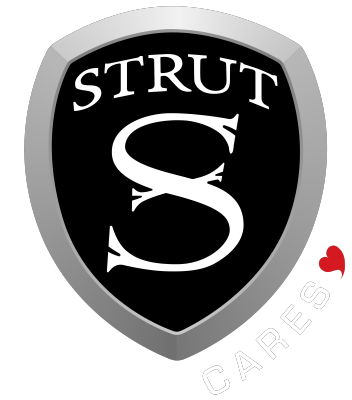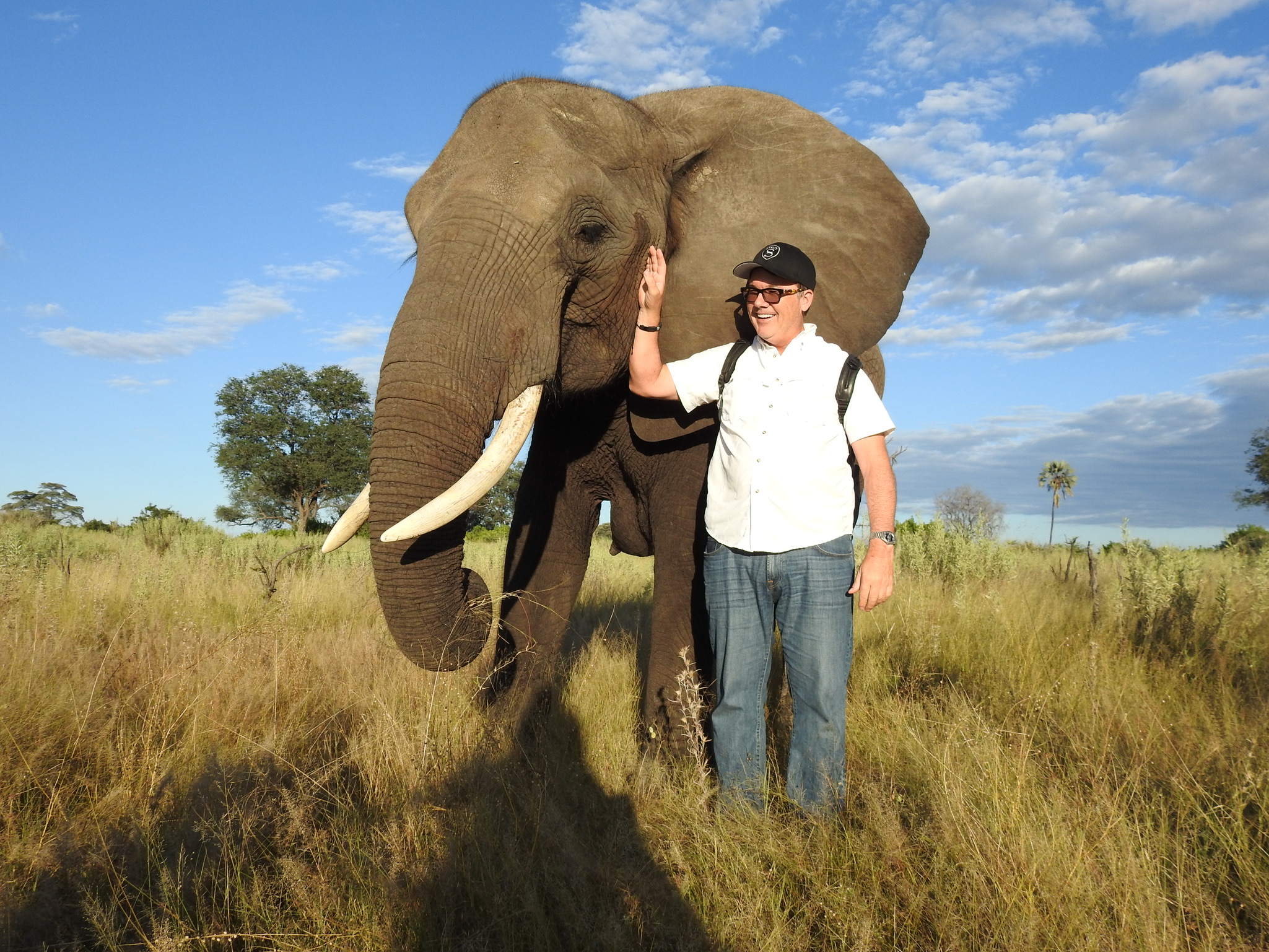In many parts of the United States, there is a crisis of people having limited reliable access to a sufficient quantity of affordable, nutritious food. As prices rise, this problem will likely become more acute. How can this problem be solved? Who are the leaders helping to address this crisis?
In this interview series, we are talking to leaders who are helping to address the increasing problem of food insecurity who can share the initiatives they are leading to address and solve this problem.
As a part of this series, we had the pleasure of interviewing Scott Struthers, Co-Founder Sonance & STRUT and Founder of Elephant Cooperation.
Scott Struthers is an award-winning entrepreneur and creator of the world’s first high-fidelity in-wall speaker. Four decades later, Sonance speakers and home technology products are found in luxury homes worldwide. Along the way, Struthers also launched iPort, a leader in wireless charging and protection systems for Apple’s mobile products, and Strut, a luxury lifestyle brand.
Today, Scott Struthers spends nearly 100% of his time focusing on philanthropic endeavors through his various nonprofit organizations such as the Sonance Foundation, Elephant Cooperation, a public charity he founded in 2016, and Strut Cares, a public charity he founded in 2022.
While the Sonance Foundation focuses on education, the environment, and assistance in their local community,
Elephant Cooperation focuses on elephant conservation, education, and helping children in Africa. At the same time,
Strut Cares believes in living responsibly and lending a helping hand to people, the planet, animals, and communities.
. . .
Thank you so much for doing this with us! Before we dig in, our readers would like to get to know you a bit more. Can you tell us a bit about your “backstory”? What led you to this particular career path?
Philanthropy has been something that I’ve always grown up around starting with my grandfather, James Struthers, who founded Strut’s first brand STRUTWEAR, a company focused on making elite women’s clothing. Although the brand was a for-profit company, my grandfather and father were always focused on how they could use the success of their business to give back to important causes. That is something that has continued to inspire and drive me throughout my career.
Can you share the most interesting story that happened to you since you began your career?
The first time I saw a wild elephant, I was 15 and with my father in Africa. My father was a biologist, and he knew that the only way to truly appreciate the elephant’s magistery is to see them in their natural habitat. Now as a grandfather, it is incredibly concerning that if we do not take action, future generations will not get the chance to enjoy these wonderful creatures. In 1970 there were 1.4 million African elephants, now there are approximately 400,000 — showcasing an immediate need to educate and raise awareness of this rapidly changing ecosystem.
Are you able to identify a “tipping point” in your career when you started to see success? Did you start doing anything different? Are there takeaways or lessons that others can learn from that?
The tipping point was when my friend, Geoff Spencer, and I realized there was no audio solution that provided amazing acoustic performance without creating a visual disruption. It was this epiphany that led us to introduce the first architectural speakers. My success has always been based on working with great people who share the same vision and purpose. Whether it’s Sonance, STRUT or Elephant Cooperation, it is always about people helping people to make this world a better place.
None of us are able to achieve success without some help along the way. Is there a particular person to whom you are grateful who helped get you to where you are? Can you share a story about that?
I am grateful to work with my long-time business partner and friend, Geoff Spencer. Geoff and I began our Sonance venture together during the winter of 1983. Geoff was finishing his senior year while I had graduated the year before and was overseeing a remodeling project for my parents on their home in Florida — giving me time to contemplate my next opportunity.
A group of our friends from Principia College had started a company called Home Technology Systems in Southern California that was at the forefront of integrating audio/video systems into homes. I had the opportunity to work with them during the summer of my junior year. In late 1982, early 1983, our friends approached me and told me that they were no longer interested in the business and asked if I was interested in acquiring it. This is how the Sonance story began. I wrote Geoff a letter at school, asking him if he would join me. While the business was very small and growing, it was going to be risky — no guarantees! He responded enthusiastically, not having committed to another career, that he would. That June (1983), we drove west from Wayzata, MN to San Juan Capistrano, CA. Friends then, friends today, with a few more stories in between!
You are a successful leader. Which three character traits do you think were most instrumental to your success? Can you please share a story or example for each?
We have a saying at STRUT which is live well, play well and give well. It is our driving force and part of our DNA. My focus is to be successful so I can enjoy my life to the fullest and give back to those in need. My goal is to grow my companies through new and innovative ideas while helping open the world’s eyes to the problems our people and animals are facing around the globe.
Can you please give us your favorite “Life Lesson Quote”? Can you share how that was relevant to you in your life? “I don’t take no for an answer because there is always a solution. Together, we can figure anything out.”
Back in ’83, people thought that having great sound and visual appeal were mutually exclusive. We proved them wrong, and a new category was born. Fast forward to today, who would have thought that Elephant Cooperation would be responsible for saving more than 65,000 Elephants while feeding more than 70,000 people and providing jobs to more than 225,500 Africans. I am glad we didn’t listen to the naysayers.
Ok super. Let’s now shift to the main part of our discussion. Can you describe to our readers how your work is helping to address the challenge of food insecurity?
Africa is currently experiencing a detrimental drought that is going into its fifth consecutive season. The ongoing drought has created food insecurity. The rain has failed for the last two years and most of the communities that rely on subsistence farming have had little to no income and limited available food. This in turn has led to a spike in illegal activities, as some people find it to be the only way they can support their families. As a result, poaching, charcoal and human-wildlife conflict have increased drastically.
The situation has gotten worse with nutrition becoming an issue and children are not attending school due to the lack of food at home. Elephant Cooperation, and Wildlife Works have formed a partnership to build a campaign, The Taita Project, with a mission to feed school children in Taita-Taveta County, Kenya.
Wildlife Works has contributed $100,000 and Elephant Cooperation has matched this donation with an additional $100,000. The $200,000 will provide food for schools for four months. Our mission is to raise an additional $200,000. By increasing the total to $400,000 dollars we can provide food for an entire school year as well as have the ability to hold off on deliveries when the kids go home on holiday and summer break. The program will set out to feed 65 schools in Kenya, providing meals to almost 23,000 children.
Can you share something about your work that makes you most proud? Is there a particular story or incident that you found most uplifting?
I believe fundraising should be fun. While everyone puts on galas, we put on The Anti Gala. The Anti Gala is the biggest Halloween party in Orange County. The Anti Gala is a night to celebrate and give back to important causes like elephant conservation, children’s education and ranger support. Coming out of covid, we were concerned that people would not come back, but we were wrong. This past October — we had a record-breaking event and through the generosity of our amazing friends, raised over 1.4 million dollars and had a great time in the process.
In your opinion, what should other business and civic leaders do to further address these problems? Can you please share a few things that can be done to further address the problem of food insecurity?
While donating to causes is important across the board, the focus on aiding efforts internationally is lacking in the US. In fact, according to a recent article from charity.org, while most Americans think that 25% of the federal budget goes to foreign aid, it actually only makes up less than 1% of the federal budget. However, in order to make long-term change, it’s important for governments and people to look at issues internationally and holistically.
Additionally, there is a lack of education surrounding issues, such as food insecurity, that are currently affecting so many people’s lives in many different parts of the world. There are 54 million people on the planet that have major food insecurity, and the lack of awareness around this is detrimental to providing help and aid. It’s on us, as leaders in the philanthropic sector, to continue driving awareness and change towards these issues.
Are there other leaders or organizations who have done good work to address the challenge of food scarcity? Can you tell us what they have done? What specifically impresses you about their work? Perhaps we can reach out to them to include them in this series.
Ramgarhia Youth Association (RYA) is an organization that has worked closely with one of our emergency relief programs, Elephants to the Rescue. Elephants to the Rescue provides monthly supplies of food rations that RYA then distributes on the ground in Africa. It was first started in 2020 in response to Covid. Schools in Kenya closed which affected the students who relied heavily on their support to feed them. Fast forward almost three years later and we still work with RYA to help distribute food relief. Without their support and hard work, 7,000 people and 200 hundred families would not have been fed. Addressing food insecurity is one of the most helpful things you can do for families in Africa.
If you had the power to influence legislation, are there laws that you would like to see introduced that might help you in your work?
If I had the power to influence legislation, I would focus on instilling education locally and nationally.
The most important concept to grasp within the work I do is that education is key. We see that even locally there is a failure in the school curriculum around covering current events. As adults, we always need to be curious and continue to gain more knowledge about national and global issues that are happening in the present day. If more people knew that Africa is in the midst of a drought that is doing detrimental harm to the communities, animals, and ecosystem, I believe more people would act.
What are your “5 things I wish someone told me when I first started” and why? Please share a story or example for each.
- Do not sell yourself short — The only way to get people to believe in you is to believe in yourself. Be bold and be brave.
- Set high goals and be innovative — There is a great sense of achievement and pride when you do the things you set out to do.
- Surround yourself with great people — Together we can achieve anything.
- Give back and help those in need — If everyone gave just a little time and/or money, think of all the people we can help.
- Enjoy the Ride.
You are a person of enormous influence. If you could inspire a movement that would bring the most amount of good to the most amount of people, what would that be? You never know what your idea can trigger. 🙂
If I could inspire a movement that would bring the most good to people, it would be to bring awareness and education to major issues in the world that are not talked about like the famine crisis across the world and the elephant crisis in Africa. It would be a movement focused on bringing people together who have the means to donate and help impact these causes in a positive way and creating a seamless process to do that consistently.
Is there a person in the world, or in the US with whom you would love to have a private breakfast or lunch with, and why? He or she might just see this, especially if we tag them. 🙂
Assuming I could choose someone, who is no longer with us, I would have loved the opportunity to sit down for breakfast with Nelson Mandela. As you know, Mandela dedicated his entire life to fighting the injustices of the people and animals in Africa. I would have loved to see his leadership and commitment to people and his ability to unite Africa. His ability to do these things is inspirational and I am proud to be one of the many people supporting his legacy.
How can our readers further follow your work online?
The Taita Project
Elephant Cooperation
Strut Cares
This was very meaningful, thank you so much, and we wish you only continued success.
An Interview With Martita Mestey



